1st Party Audit
1st Party Audit
Introduction to 1st Party Audit
The competitive economy is the major ingredient to focus on for all types of entrepreneurs, industries, and businesses in India. In service industries, a well-established company always seeks the right opportunity to provide quality service to its customers.
A detailed and exhaustive quality check is required for the organization to verify the performance of the system, or the processes in detail. The right type of 1st Party Audit can improve the functioning and operations in the right way.
To fulfill the right criteria for this 1st Party Audit, certain things should be adapted by the organization to process. A product receives its true purpose when an industry gives its best while making it. Well, these ideas require the right guidance for sure.
What is the part that helps an organization to achieve the right quality? An internal check is an important part of assisting the management and employees to check up on a few activities within the process and organization.
The processes or frequencies of a 1st Party Audit may depend on the activities, size, number of locations and decisions of an organization. It is the major part of how it should verify different controls starting from documentation to productivity. A few things are still to consider such as:
- What happens to the process or product after three months, six months, or a year?
- Is documentation maintained and do controls remain in place?
- What is organization’s frequency of checking the product assurance and service it provides to its customers?
- Is the Internal Audit going to take into consideration any ISO standard like ISO 9001, ISO 14001, ISO 45001, ISO 27001, etc.?
- Are there any qualified Auditors / Inspectors?
- Is the Organization aware about conducting the Audits as per any respected and known standard like ISO 19011?
- Greater inspections and audits and document reviews from the Customers.
Most of the companies are taking initiatives and planning strategies to conduct 1st Party Internal Audits within their various processes eg. HR, Admin, Manufacturing, QA/QC, Purchase, Marketing / Sales, Design, Logistics, Stores, Products, and quality system audits. When picking the effective method, the 1st Party Audit (internal auditing) holds its quality and adherence to fulfill all needs and required process standards.
What is a 1st Party Audit (Internal)?
Internal Audit is the common name used for 1st Party Audit. It is a professional activity that helps organizations to achieve their stated objectives by:
- Checking the documentation and conducting a detailed review on its appropriateness
- Identification of various Issues (Internal and External) and checking, whether they have been addressed in the Risk Register. Also, identification, if the correct Mitigations have been planned and being implemented.
- Whether Policies and Objectives are in place.
- Whether responsibilities have been set.
- Analyzing key processes, procedures & operations
- Identifying key controls in each such operation, procedure & process
- Evaluating the adequacy of these controls
- Testing compliance of sample transactions against these controls
- Reporting results of the evaluation of controls and compliance testing of transactions
- Identifying Opportunities for Improvements, and Non-Conformities
- Recommending stronger controls wherever necessary
- Suggesting methods to improve compliance with key controls
- Follow up on action taken on recommendations made in previous reports
How does the 1st Party Audit compare with External Audit?
1st Party Audit is focused on a specific management system and its support, internally and improving systems, procedures, and processes. They are as follows:
- External Audit is sometimes a statutory requirement, like an internal audit. (Internal Audit is mandatory,
- External audit reports are addressed to stakeholders. Internal audit reports are addressed to Management.
- External audit reports express an opinion on the Management System and are generally conducted by an external Certification Body like Euro VERITAS Ltd. Internal audit reports evaluate and check compliance against key internal controls within the processes and system.
- Eternal Audits are conducted by the eternal body, while Internal Audit (1st Party audit) is conducted by Internal people within the organization- or hired by the Organization like Ascent WORLD, who are qualified.
- Both External and Internal Audits are conducted using ISO 19011, and is done by Qualified Auditors for the standard.
- External audit reports are usually public documents that are available to all stakeholders. Internal audit reports are for use only by Management.
- External audit reports do not make recommendations. Internal audit reports are incomplete without.
- Both Internal (1st Party) and External Audits give out consolidated findings reports in the form of Opportunities for Improvement (OFI) and Minor/Major Non-Conformities (NC).
- The Organization must close the OFIs and NCs, through documents and implementation.
- The Internal Audits conducted by Ascent WORLD are generally more thorough, and stringent than External Audits, and generally serves to make the Organization ready to face external audits from Certification Body or Customers or Regulatory Authorities.
- Both Internal (1st Party) and External Audits use checklists and include a Plan (Calendar), Schedule, and an output Summary Report and Findings report.
Request Form
If you have any questions, just fill in the
contact form, and we will answer you shortly.





